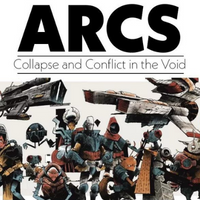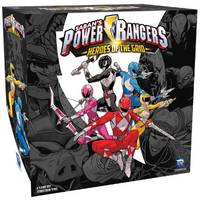18 June 2022
|
Reject dice, embrace destiny
Originally launched in 1995, Everway was a revolutionary take on tabletop roleplaying that dispensed with the dice and counters of conventional games. It replaced them with a rules-light system that promoted drama and shared storytelling, as well as a tarot-esque deck of fortune cards that provided not only a hint of randomness, but also visual inspiration for GMs and players alike.
More than two decades later, the entire game is back on our shelves once more in a Silver Anniversary edition. This new version of the game tightens it up and adds content, but the heart of the design is still firmly rooted in its mid-90s origins.
This doesn’t just extend to the setting – a plane-hopping array of fantasy realms that draw from a huge swath of real-world cultures – either. The rules themselves are cunningly designed and somehow seem to radiate a sense of warmth. It’s clear right from the start that this is a game that relies on teamwork.
This is mainly thanks to what broadly passes for its core mechanic. At first glance you might be forgiven for thinking that Everway simply looks to replace conventional dice-rolling with card-drawing instead. However, once you get through the rulebook and begin to play the game it becomes clear that the main thrust of playing the game is talking events over and trusting the GM to rule fairly.
Characters and creatures, for example, are assigned scores that correspond to each of the core elements – fire, air, water and earth. Each of these elements corresponds loosely to their physical and mental attributes. A person with a high affinity with water might be excellent at reading the room and solving disputes, while someone with a great score in fire might be bulging with muscles and naturally gifted at combat.
When the heroes get into a situation where a conventional RPG would call for a dice roll, you instead compare the elemental scores that make the most sense. If two characters are having a stand-up battle the one with the higher fire affinity is pretty much always going to win.
If comparing stats was the only factor in play, of course, things might get a little boring and predictable. Everway heads this off by introducing two additional rules.
The first of these is ‘The Law of Drama’. This is exactly what it sounds like, and is essentially a formal acknowledgement that sometimes the needs of the story can push results in unexpected directions. It dictates that the players are almost always going to find their way out of the prison cell, even if the numbers might indicate otherwise. It might not be an easy way out, but if the story needs it to exist, it does.
The final system is ‘The Law of Fortune’, and is the closest thing that the game has to a conventional random-chance mechanic. On a basic level, this just means that the GM draws a card from the fortune deck and interprets it to fit the current situation. A broadly positive card might mean the action succeeds, with the tone of the card providing a hint as to how things played out.
This lovely little system means that Everyway is deeply reliant on cooperation, negotiation and everybody playing nice. There are no hard and fast rules when it comes to how many spells a hero can cast in a day, for example, but it’s expected that characters with a low score in earth – the element of endurance – will tire after using their powers a couple of times.
It’s possible for someone to bulldoze their way through a session and push for their hero to do whatever they feel. The well-written GM’s guide has plenty of advice on how to avoid this, but the game itself also creates a mood at the table where all but the most self-centred players will quickly realise that there’s no point in being selfish and trying to abuse the game’s limited mechanics.
For all its love of fantasy adventure, and the violence that comes parcelled with that, Everway is a beautifully gentle game. It leans so heavily on the collaborative nature of storytelling that players can’t help but carry the adventure along.
This approach isn’t for everyone. If you love the click-clack of dice on the table and feel your pulse begin to race whenever a meaty challenge appears on the horizon, you might find Everyway a shade wishy-washy. Unfocussed, perhaps.
If, however, you’ve always felt that the dice get in the way of a good story, this is an incredible opportunity to pick up a game that whole-heartedly agrees with you.
Richard Jansen-Parkes
PLAY IT? YES
An excellent slice of diceless roleplaying that updates the 90s classic to the modern day.
TRY THIS IF YOU LIKED Wanderhome
If you liked Wanderhome’s diceless adventures, but craved more traditional questing Everway is ideal.
Looking for more?

This review came from Tabletop Gaming Magazine, which is home to all of the latest and greatest tabletop goodness. Whether you're a board gamer, card gamer, wargamer, RPG player or all of the above, find your copy here.
Get your magazine hereRead More...

If you want to read more about one of the most hotly anticipated games of the year, check out our interview with Cole Wehrle on ARCS! A new game from the designer of Root and Oath, and we've got all you need to know.
To infinity and beyond
Join us in person

We can't wait for Tabletop Gaming Live 2022! An epic weekend in Manchester full of board games, card games, roleplaying games, wargames and more, with amazing exhibitors, great games, and an opportunity to game together in person.
See you there!Treat Yourself!

Have you visited our game store? We have everything from mystery boxes, to games and accessories – including the above Power Rangers: Heroes of the Grid, with a great discount! Head over to find your new favourite game.
Visit the Game Store
Sometimes we may include links to online retailers, from which we might receive a commission if you make a purchase. Affiliate links do not influence editorial coverage and will only be used when covering relevant products








Comments
Login or register to add a comment
No comments